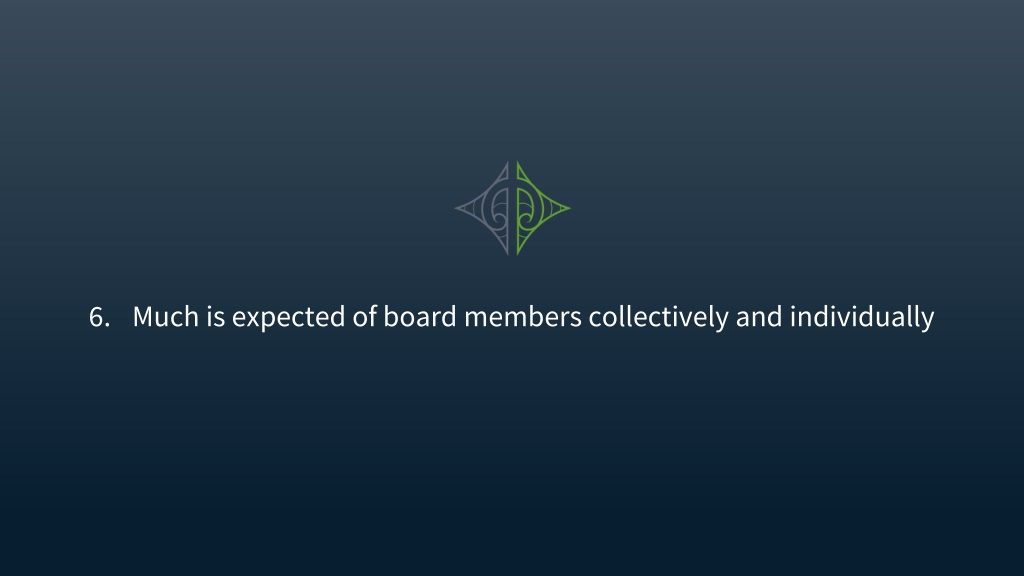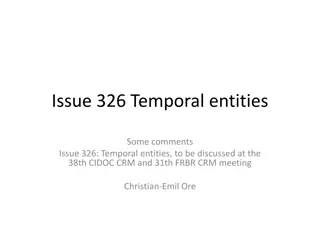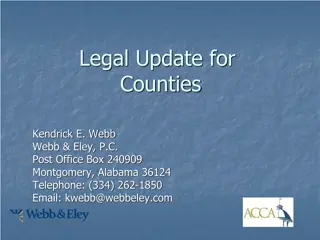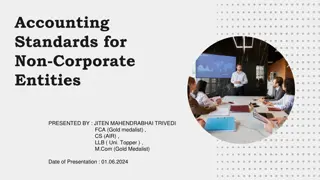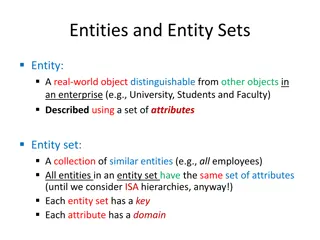Expectations and Responsibilities of Board Members in Statutory Entities
Board members of statutory entities are collectively expected to ensure consistent and effective entity performance, financial responsibility, and collaboration. Individually, they must act with integrity, comply with legislation, and avoid conflicts of interest. Boards have a crucial role in monitoring performance and reporting to support valid judgments. Liabilities and indemnities under the Crown Entities Act provide immunity to members in good faith actions.
Download Presentation

Please find below an Image/Link to download the presentation.
The content on the website is provided AS IS for your information and personal use only. It may not be sold, licensed, or shared on other websites without obtaining consent from the author. Download presentation by click this link. If you encounter any issues during the download, it is possible that the publisher has removed the file from their server.
E N D
Presentation Transcript
6. Much is expected of board members collectively and individually
Collectively, statutory entity boards are expected to: ensure the entity acts consistently with the entity s objectives, functions, the current SOI and the Statement of Performance Expectations ensure that the entity performs its functions efficiently and effectively, in a manner consistent with the spirit of service to the public, and in collaboration with other public entities (where practicable) ensure the entity operates in a financially responsible manner, by prudently managing its assets and liabilities and endeavouring to ensure long-term financial viability.
Individually, board members are expected to: comply with the Crown Entities Act, their entity s enabling Act and other relevant legislation act with honesty and integrity act in good faith and not at the expense of the entity s interests act with reasonable care, diligence and skill (as a reasonable person would in the same circumstances) avoid disclosing information obtained in their capacity as a member, unless in specified circumstances. Note that both the board and its individual members can be sanctioned for a breach of duties.
Performance assurance Boards have the primary responsibility for monitoring and reporting on a Crown entity s performance they must know what is happening in their agency. Ministers have both a need and a right to know -boards should provide information on which valid judgments can be made about an entity s performance. Boards are expected to work constructively with Ministers and monitoring departments to identify the performance measures and standards that will support accurate and appropriate judgments about the Crown entity's performance and progress.
Liabilities and indemnities The Crown Entities Act gives individual members and other personnel immunity from civil liability when they have acted in good faith in performance or intended performance of the entity s functions. There is no immunity from criminal liability. A board may indemnify and insure its members and other statutory entity personnel. An office holder or employee will not be covered for any act or omission made in bad faith and/or not conducted in the performance or intended performance of the entity s functions.
